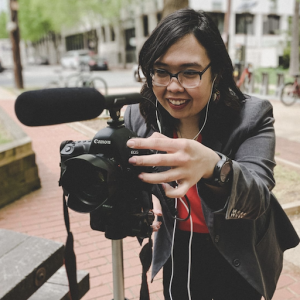
Anthony Jack, Assistant Professor of Education at the Harvard Graduate School of Education, and author of a best-selling new book, The Privileged Poor: How Elite Colleges Are Failing Disadvantaged Students, will speak on Thursday, September 26th, 2019 at Trinity College in Hartford, Connecticut.
12:15-1:15pm “On Diversity: Access Ain’t Inclusion,” Common Hour lecture in the Washington Room, second floor of Mather Hall. This event is open to the public. Seating is limited to 450 people, so arrive early. Parking also is limited, so we recommend that visitors enter the Broad Street gate near New Britain Avenue, park near the Ferris Athletic Center, and walk a short distance toward the center of campus to Mather Hall. See Trinity campus map. Books may be signed during the last 15 minutes of this event.
Other events on this day:
11am-12 noon Anthony Jack meets with students in the Educ 309: Race Class and Ed Policy seminar, who are conducting a related study at Trinity. McCook Hall 305.
1:30-2:30pm Lunch discussion with Anthony Jack for Trinity faculty and staff in Rittenberg Lounge, Mather Hall. Seating is limited. Please RSVP to Patricia.Maisch@trincoll.edu. Books may be signed during the last 15 minutes of this event.
2:55-4:10pm Conversation with Anthony Jack for Trinity student leaders in Hamlin Hall. Contact [email protected] for more info. Books may be signed during the last 15 minutes of this event.

4:30-5:30pm Video “(Un)Privileged: The Cost of Being Poor at An Elite Institution,” and discussion with director, Bettina Cecilia Gonzalez (Trinity ’16) in Terrace B & C, second floor of Mather Hall. Open to the public. (Un)Privileged is a documentary that explores the social and personal issues faced by many low-income and first-generation undergraduate students across wealthy private colleges and universities in the United States. The film includes a cast of diverse first-generation and low-income students from Trinity College in Hartford, Connecticut, Vassar College in Poughkeepsie, New York, and Columbia University in the heart of New York City.
Evening discussions: Resident Assistants and PRIDE leaders will organize small-group follow-up discussions with members of the Trinity community on topics raised earlier in the day by Anthony Jack.
About the speaker: Anthony Abraham Jack, a native of Miami, received a scholarship to attend Gulliver Preparatory School, an elite private high school in South Florida. He went on to receive degrees from Amherst College and Harvard University. He is currently a Junior Fellow at the Harvard Society of Fellows, an Assistant Professor at the Harvard Graduate School of Education, and the Shutzer Assistant Professor at the Radcliffe Institute for Advanced Study.
About the book and lecture: Elite colleges are accepting diverse and disadvantaged students more than ever before, but access does not equal inclusion. Anthony Jack studies how poor students are often failed by the top schools that admit them and reframes the conversation surrounding poverty and higher education. His work explains the paths of two unique groups. First, the “privileged poor”: students from low-income, diverse backgrounds who attended elite prep or boarding school before attending college. The second are what Jack calls the “doubly disadvantaged”—students who arrive from underprivileged backgrounds without prep or boarding school to soften their college transition. Although both groups come from economically disadvantaged backgrounds, the privileged poor have more cultural capital to navigate and succeed—in the college environment and beyond. In many ways, rather than close the wealth gap, campus cultures at elite schools further alienate poor students by making them feel like they don’t belong. To challenge these deeply ingrained social, cultural, and economic disparities on campus, we must first begin to question what we take for granted. Jack speaks to how organizations—from administrators and association organizers, to educators and student activists—can ask the right questions and bridge the gap.
Sponsored by: Academic Affairs; Center for Teaching and Learning; Dean of Students Office; Educational Studies Program; Office of Diversity, Equity and Inclusion; Enrollment and Student Success; Neuroscience Program; and Political Science Department.
